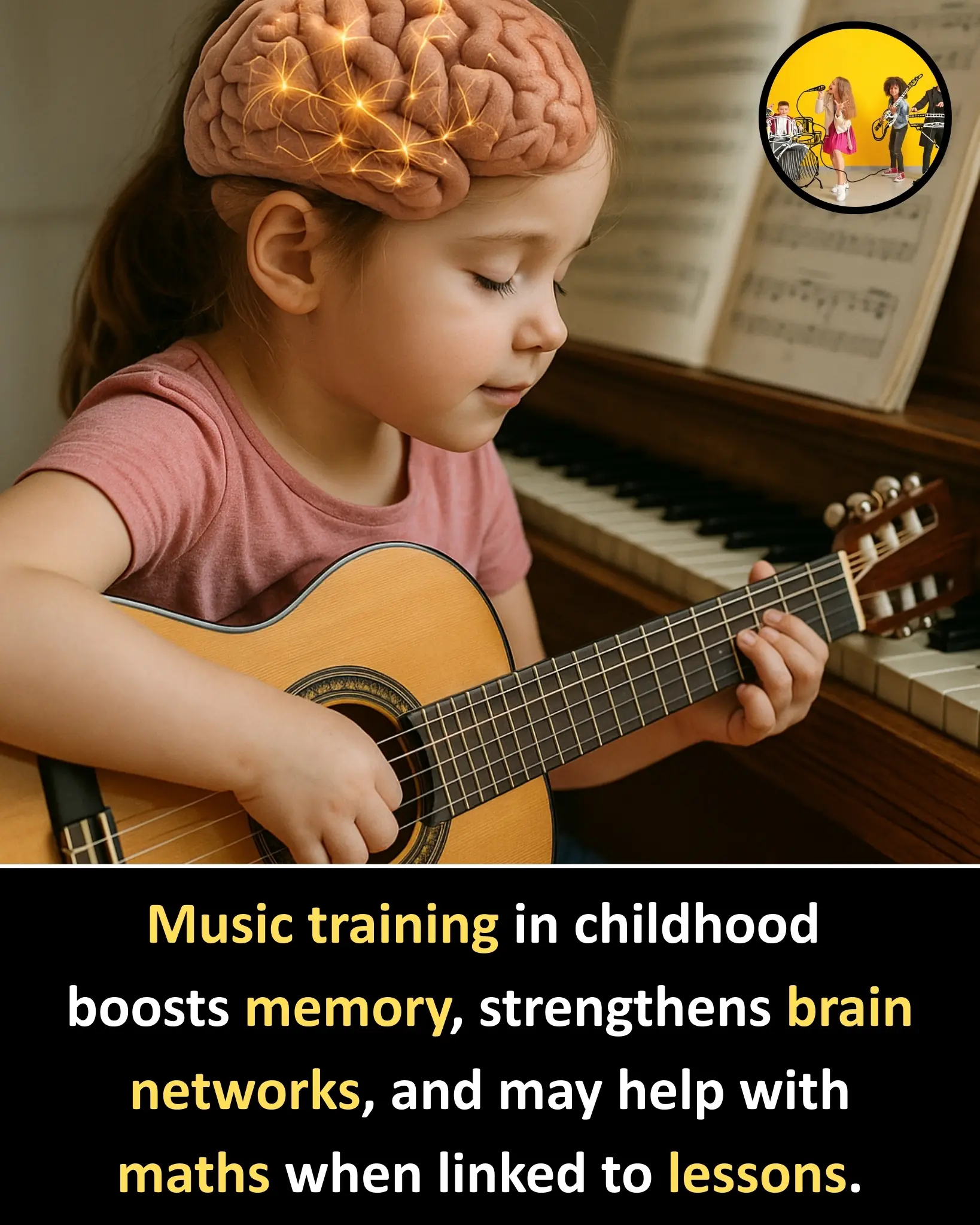
How Learning Music Shapes Young Minds
For many families, music lessons are seen as a way for children to develop a hobby or learn a new skill. But research increasingly shows that childhood musical training does far more than teach kids how to play an instrument—it strengthens the brain in profound and lasting ways.
A Workout for the Brain
Neurological studies reveal that when children engage in musical practice, multiple brain regions are activated simultaneously. Playing an instrument requires the integration of motor skills, auditory processing, and memory, all working together in real time. This mental workout creates stronger neural connections, improving both attention span and memory capacity.
Children who regularly practice music often demonstrate better recall abilities, as their brains adapt to storing and retrieving complex patterns of notes, rhythms, and lyrics. According to a study published in Frontiers in Neuroscience, young musicians develop enhanced connectivity between the left and right hemispheres of the brain, which is linked to improved problem-solving and cognitive flexibility.
Music and Mathematics: A Natural Connection
One of the most fascinating findings about music education is its close link with mathematics. Rhythm and timing mirror mathematical concepts such as fractions, ratios, and patterns. Counting beats, dividing measures, and recognizing rhythmic structures all reinforce numerical reasoning.
Educational researchers have observed that students who study music often perform better in mathematics and problem-solving tasks. By connecting abstract numbers to tangible sounds and rhythms, music provides a concrete, engaging way for children to strengthen their logical thinking.
Beyond Academics: Confidence and Creativity
The benefits of music training are not confined to memory and math. Mastering an instrument requires discipline, focus, and perseverance—skills that build confidence over time. Children who progress in music often carry this confidence into other areas of life, including academics, sports, and social interactions.
Moreover, music fuels creativity and emotional expression. Whether composing, improvising, or simply interpreting a piece, children learn to channel feelings into art, fostering emotional intelligence alongside intellectual growth.
A Lifelong Advantage
Experts emphasize that the advantages of music education extend well beyond childhood. Adults who studied music at a young age often retain stronger cognitive abilities, including sharper memory and more resilient brain function later in life.
Dr. Ananya Rao, a cognitive scientist, explains: “When children learn music, they are not just training their fingers or their voices—they are training their brains to think more broadly, more flexibly, and more creatively.”
More Than an Art Form
In short, music education is not simply about learning to play an instrument. It is a powerful developmental tool that enhances memory, attention, logical reasoning, and creativity—all while bringing joy and enrichment to a child’s life.
For parents, enrolling children in music lessons may be one of the most valuable investments in both their academic growth and their long-term well-being.
News in the same category


9-year-old dies after dental procedure

Bedtime Stories: A Simple Ritual With Lifelong Benefits

Chrysalis: Humanity’s 36-Mile-Long Generation Ship Concept to Reach Proxima Centauri

Cryonic preservation: 50 years later

A Dog’s Unfinished Dream of Happiness Finally Comes True

From Abandoned to Adored: Amber the Puppy’s Journey to Hope and a Fresh Start!

From Stray on the Streets to Shining Star: Sam’s Inspiring Recovery Journey

Chimpanzee has the sweetest reaction after seeing the sky for the first time after life of captivity

Researchers Explore Potential Dementia Risk Linked to Gabapentin

Shelter Dog Extends Paw Through Kennel Bars, Longing for Love and a Home

From Despair to Mobility: Rescued Husky Vova Triumphs Against Adversity with New Wheels

Wife Diagnosed with Terminal Cancer Due to Her Husband’s Habit

She Thought She Saw A Happy Bird In The Woods, Then Suddenly Realizes Her Mistake

Doctor discusses the dangers of kissing someone who passed away and the health risks it can create

The Great Rift: How Africa is Slowly Splitting to Form a New Ocean

‘Zombie Squirrels’ with oozing flesh terrify U.S. homeowners

Celestial Jewelry: Moon Meets the Seven Sisters at Dawn

Tourist’s Selfie Stunt Turns Into Terrifying Crocodile Attack in the Philippines
News Post

Cucumber Gel Remedy: Visibly Younger Hands with a Natural Touch

All-in-One Master Tonic with 7 Powerful Ingredients

Baking Soda & Turmeric: A Must-Try Skin Brightener

Mix Watermelon and Coffee Drink: A Refreshing Energy Twist

Garlic Oil for Natural Eyelash & Eyebrow Growth

Natural Remedy? Lemon and Charcoal for Tooth Decay

Don’t Miss These 11 Early Signs of Pancreatic Cancer – This Could Save Your Life

Homemade Cream to Get Pink Lips Naturally: Tomato and Turmeric Remedy

MISTAKE #1 WHEN CHEWING CLOVES (YOUR HEALTH IS IN DANGER)

8 Of The Most Harmful Foods for the Prostate

Papaya Seeds Can Save You a Lot of Money at the Pharmacy

The Secret Food That May Support Knee Cartilage Health

Popular shampoo recalled over deadly bacteria risk

9-year-old dies after dental procedure

🎄 Christmas Tree Brownies with Chocolate Buttercream

🍫 Mini Cheesecakes with Chocolate Ganache & Truffle Popcorn Topping

Bedtime Stories: A Simple Ritual With Lifelong Benefits

The Day Courage Jumped Into The Water

